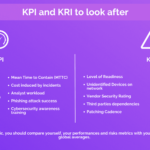Practical Tips for Reducing Debt Quickly and Improving Your Credit Score in the Process
Managing debt and improving your credit score can seem like a daunting task, but with a strategic approach, it’s entirely achievable. Here are some practical tips to help you reduce your debt quickly while simultaneously boosting your credit score.
1. Create a Detailed Budget
The foundation of any effective debt reduction strategy is a well-crafted budget. Start by tracking your income and expenses to get a clear picture of your financial situation. Categorize your spending to identify areas where you can cut back and allocate more towards debt repayment. A budget will help you prioritize your debt payments and avoid accumulating more debt.
2. Prioritize High-Interest Debt
Focus on paying off high-interest debts first. This approach, known as the “avalanche method,” saves you more money in interest over time. List your debts from highest to lowest interest rate and direct any extra funds towards the highest-interest debt while making minimum payments on others. Once the highest-interest debt is paid off, move on to the next one on your list.
3. Consider Debt Consolidation
Debt consolidation can simplify your payments and potentially reduce your interest rates. By combining multiple debts into a single loan or credit card with a lower interest rate, you can streamline your payments and save on interest. Look for consolidation options with favorable terms and avoid accumulating new debt on your credit cards during this process.
4. Negotiate Lower Interest Rates
Contact your creditors to negotiate lower interest rates on your existing accounts. Many creditors are willing to reduce rates if you have a good payment history and explain your situation. Lower interest rates can reduce the total amount you pay over time and accelerate your debt repayment process.
5. Set Up Automatic Payments
Automating your debt payments ensures that you never miss a due date, which is crucial for maintaining a good credit score. Set up automatic payments for at least the minimum required amount to avoid late fees and potential damage to your credit score. This also helps in building a positive payment history, which can enhance your credit score.
6. Build an Emergency Fund
An emergency fund acts as a financial cushion, preventing you from relying on credit cards or loans in case of unexpected expenses. Aim to save a small amount each month until you have a fund that can cover three to six months’ worth of living expenses. This practice can help you stay on track with debt repayment and avoid falling back into debt.
7. Monitor Your Credit Report Regularly
Regularly review your credit report to ensure that all the information is accurate and up-to-date. Errors on your credit report can negatively impact your credit score. Dispute any inaccuracies with the credit bureaus to correct your report and improve your credit standing.
8. Avoid Taking on New Debt
While working on reducing your existing debt, refrain from taking on additional debt. Avoid using credit cards for non-essential purchases and resist the temptation of opening new credit accounts. Each new credit application can result in a hard inquiry, which may temporarily lower your credit score.
9. Seek Professional Help if Needed
If you find managing your debt overwhelming, consider seeking help from a credit counseling service or financial advisor. These professionals can provide personalized advice, help you develop a debt repayment plan, and negotiate with creditors on your behalf.
By implementing these strategies, you can reduce your debt more efficiently and enhance your credit score. Remember, consistency and discipline are key to achieving long-term financial health and stability.









